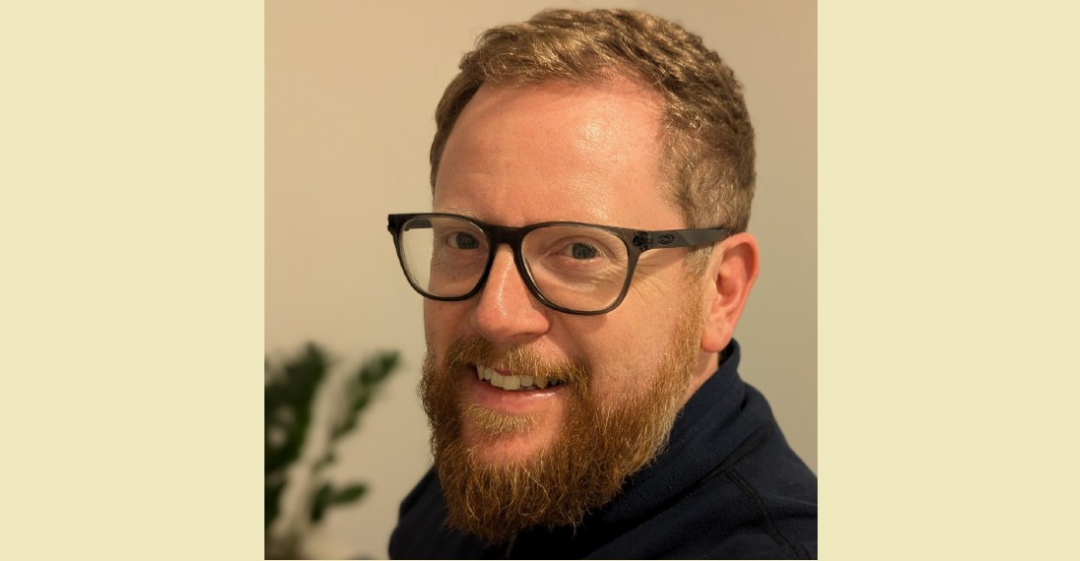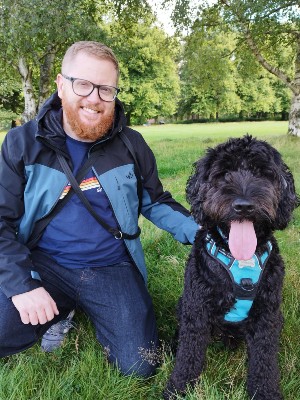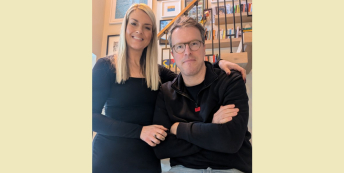“I wanted to make a difference, rather than be a replaceable cog in a big machine.”

What work were you doing previously?
I was working as a contractor in finance, handling PPI complaints for various high street banks.
What are you doing now?
I now work as an employment advocate on a support programme called Households Into Work, which is part of Liverpool City Region Combined Authority.
I’m also studying a part time diploma in psychotherapeutic counselling.
Why did you change?
After I completed my university degree 18 years ago, I struggled to identify a career that I actually wanted to do, and found myself going from meaningless job to job, which paid the bills but didn’t really offer much more.
I eventually wound up as a self-employed contractor, handling PPI complaints for high street banks such as Lloyds, Barclays and Clydesdale Bank.
The money was great, but the last contract I worked on was a night shift up in Scotland, which involved travelling up there and back each week, working 12-hour nights until 6am.
The nights were long, the weather was cold and the work was boring! I always struggled with regulating my sleeping pattern too, which made the work all the more harder.
Cases were marked to a high standard, and a number of failed cases (reds) could result in you being put on a performance plan, or worse, removed entirely from the contract.
I still get e-mail anxiety in my current role whenever I take annual leave, expecting to see a number of passed and failed cases in my inbox!
Given how much the night shifts and travelling was affecting me, I knew I had to find something different.
I always liked the idea of working in a role where I could give back and make a difference, rather than just being a replaceable cog in a big machine.
When was the moment you decided to make the change?
When the first pandemic lockdown was announced.
I used the opportunity to part ways with financial services altogether, and decided I was going to try something completely different, even if it meant taking a pay cut.
I was lucky in that my outgoings were relatively low at the time, blissfully unaware of how the pandemic was going to affect things…
Are you happy with the change?
Leaving the world of finance was difficult.
The money was great, but it offered no job satisfaction, and the night shifts were really affecting my mental and physical health.
However, I can say now that I’ve never been happier in a role. I have the best team, excellent working conditions and most of all, my sleep pattern is back to normal!
What do you miss and what don't you miss?
Some of the people I met contracting are some of my best friends today.
I think a lot of people just fall into that kind of job, so you really do meet folks from all walks of life. I also definitely miss the money!
That being said, the long hours, the night shifts, the e-mail anxiety over marked cases, the living-out-of-a-suitcase, the Scottish weather, the long commutes and the boring work – they can all do one!
How did you go about making the shift?
About a year before I left the Scotland-based contract, I volunteered a day a week with a housing association, who had a contract supporting Liverpool residents with housing-related issues.
This meant that I became a familiar face in the office, and it gave me the opportunity to learn about the sector which would eventually become my new field of employment.
About three months after the first lockdown, the housing association offered me a role as a relief worker in a hotel which was being used to house homeless individuals during the pandemic.
This was a bit of a shock to the system having just taken three months off – the environment was often chaotic, and I was thrown into the deep end from day one. The hotel experienced many issues including regular evictions, alcohol and substance misuse and even a suicide attempt.
The four months spent working here were some of the most challenging of my life, however, when I realised the positive impact I could have, and after receiving my first card saying “thank you for not giving up on me”, I knew this was what I wanted to do for a living.
When it was announced that the hotel would start to be used for its intended purposes again, I was successful in becoming a permanent floating support worker.
This involved supporting clients with housing issues including tenancy sustainment, resettlement and obtaining grants and funding to clear arrears or pay for furniture.
This was on a one-to-one basis, which I found much easier than in the hostel, and meant that I could give my full focus and attention to one person at a time.
Following this, I applied for my current role with Households Into Work last year, which offered a better salary, better working conditions and a lot more support.
How did you develop (or transfer) the skills you needed for your new role?
In my current role, we have to manage large caseloads, which we also had to do in the complaints handling role.
I was therefore able to transfer my strong organisational and time management skills across to the new position.
All of my previous roles before moving into health and social care involved the heavy use of computers, so I had a solid foundation of digital skills, which are integral to my current job given that we have a lot of admin.
But my new role is very different, and I’ve had to develop many new skills such as active listening and being resilient.
What didn’t go well? What wrong turns did you take?
The relief worker role was more different than any other job I’d done.
Most of the training was on-the-job, which was hard to get used to as all of my previous finance roles involved weeks of training before even touching a case.
It also took some adjusting to the lower salary, as I was now taking home a third of the money I was making before. It was definitely a lesson in money management…but one I was glad to learn!
How did you handle your finances to make your shift possible?
I definitely had to make a few sacrifices.
I had some savings I was able to live on for a while, and had just moved into a new place with my partner, so splitting all the rent and bills helped. She was in the middle of her PHD, so we had to go easy on all the small luxuries like takeaways.
The pandemic had also put a stop to nights out and holidays, so that was a bonus! The hotel was regularly short staffed, so I was able to pick up a lot of overtime when I got the relief worker role.
What was the most difficult thing about changing?
The hotel was often a chaotic and lively environment, and there was a lot to learn.
This meant that the shifts would fly by, but would often leave you feeling a bit burnt out (emotionally and spiritually) at the end of each day.
There were sometimes situations that would also make it difficult to switch off after work, such as when a resident took a drug overdose. When I worked in finance, you left your work at the door when you left the building!
What help did you get? 
I spoke with my manager who taught me about reflective practice which really helped.
I also learnt to recognise when things were getting on top me, and take some time out where I could.
What resources would you recommend to others?
The National Careers Service online skills assessment is a great place to start (try to keep an open mind with some of the suggestions!).
And if you’d like to try and get into the NHS, they have a ‘Find Your Career’ quiz you can take to get you inspired and informed.
What have you learnt in the process?
Some things are much more important than a salary, like your health, your happiness and your working conditions.
What do you wish you'd done differently?
Only that I’d made the change sooner!
What would you advise others to do in the same situation?
Get as much information about other career possibilities as you can.
For instance, if your goal is to set up your own business, see if your local authority has a business support service you can contact, or maybe you have a friend who runs their own business – ask if you can shadow them for a day.
Absolutely consider doing some volunteering! It looks fantastic on your CV and is a great way to explore alternative career paths, even if it’s just for a couple of hours a week.
Consider seeing a career advisor who can provide an alternative perspective than your own.
What lessons could you take from Michael's story to use in your own career change? Let us know in the comments below.



